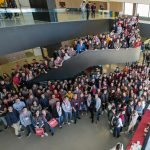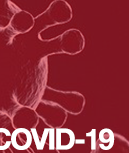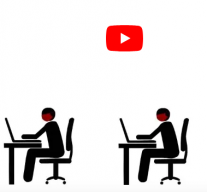Conference Dr. Nuria Oliver (Vodafone): “The mobile changes skin” (February 16, 12:30, classroom 1.5 buildings Arenals)
Conference: Mobile changes skin
Nuria Oliver (Director of Data Science Research at Vodafone)
Date: 16-02-2017 Time: 12:30 Place: Classroom 1.5 Ed Arenals
Technological trends that will mark the future of our beloved mobile phone and reflections derived from them
We can not live without it. We feel panic and even phobia when we do not have it nearby. It is the object that more time passes with us, surpassing even the time that we dedicate to our most dear ones. The mobile, inseparable companion, in its little more than 30 years of life has become the technological device with more adoption in the history of the humanity, being a global phenomenon. There are already more mobiles than humans in the world.
Today’s mobile phones are, in fact, powerful minicomputers connected. They allow us to do our work or study outside the office, entertain us and help us stay in touch with tens, hundreds or even thousands of people through social networks and communication applications.
Despite its technological sophistication, despite calling them smartphones, today’s mobile phones in their appearance are very similar to the From 10 or even 20 years ago. But what future holds the mobile?
Speaker:
Nuria Oliver is Director of Data Science Research at Vodafone and Chief Data Scientist at Data-Pop Alliance. She is a Senior Telecommunications Engineer at the UPM and a Ph.D. from the Massachusetts Institute of Technology (MIT) in Perceptual Intelligence. She has more than 20 years of research experience at MIT, Microsoft Research (Redmond, WA) and as the first scientific director (woman) at Telefonica I + D (Barcelona). His work in computer modeling of human behavior, human-machine interaction, mobile computing and Big Data analysis -especially for the Social Well-is internationally known with more than 150 scientific publications, cited more than 11,000 times and with one Dozens of awards and nominations for the best scientific article. She is co-inventor of 40 patents and guest speaker regularly in international congresses.
His passion is to improve the quality of life of people, both individually and collectively, through technology. She is also very interested in scientific divulgation, so she is a frequent collaborator with the media (press, radio, television) and gives lectures on technological and scientific diffusion to the public in general and especially to adolescents, with particular emphasis on Girls



